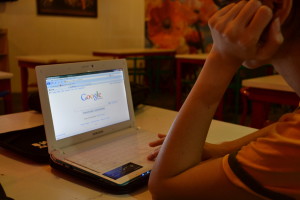
Social media is dominating the structure of human lives. Facebook, Twitter, Instagram etc are popular all over the world. People “Check-In” on their friends, their enemies and people they don’t even talk to anymore.
Why do we impulsively “check-in” on people we don’t interact with especially the individuals with which we’ve had a falling out?
The New York Times has the answer – Hate Reading. According to the article Hate Reading, mostly of social media sites, provides us with “satisfaction from fury-fueled engagement with someone who should theoretically not provide it.”
Katie J. M. Baker, a writer for Jezebel commented, “I usually hate-read alone, late at night when I’m procrastinating, drunk, bored or all three,” she wrote. “When I finally walk away from my computer, I feel like I’ve just binged on a butter-sogged bag of popcorn before the movie even started: I’m slightly nauseated, but still can’t help licking my fingers for more fatty flavor.”
Jillian Sanders is also a self confessed hate reader. She frequently visits the Facebook page of a high-school classmate she hasn’t talked to in years.
“I don’t know why it infuriates me,” said Sanders, 31, a freelance book publicist. “She’ll often describe, say, how her favorite ice cream flavor makes her happy all day. I feel like she’s lying. I get upset watching people post pictures of a rainbow that says ‘I believe in magic’ — upset that they’re projecting that image and thinking others are falling for it, or that they’re falling for it themselves. Maybe I’m just jealous.”
A Stanford study suggested we underestimate negative emotion in others’ lives (a misjudgment exacerbated by the cheery cast of most social-media personae). Alexander Jordan, assistant professor of business administration at Dartmouth said, “Some research suggests that downward emotional comparisons can improve people’s well-being.”
He went on to comment in an interview, “It’s when a person’s typically rosy self-view is temporarily threatened that self-enhancement processes, such as finding people to ‘hate’ online, are triggered. Research has also shown that people who are chronically unhappy or low in self-esteem are more concerned about social comparisons, upward or downward, in general.”
I typically don’t. Sure there’s an occasional positive charge when I see a picture and think “Whoa, she’s put on about 20 pounds” or “Look, he’s almost bald,” but I don’t accept friend requests from those who aren’t and unfriend those who somehow slipped through. I also don’t go to sites for intellectual Luddites. No sense in engaging with folks who believe the world is flat.
John – Thanks for your comment.